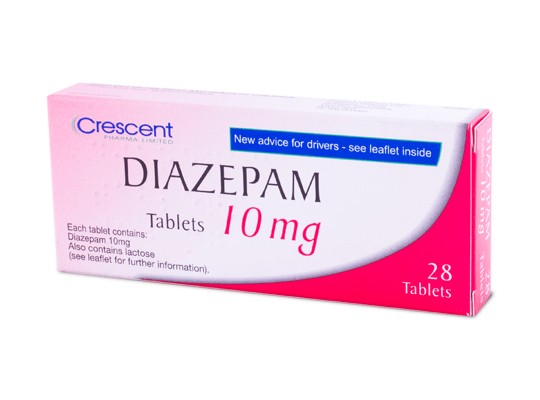It’s time for old-fashioned medical experts to demonstrate the science behind their medication by demonstrating successful, nontoxic, and economical patient outcomes. It’s time for you to review the clinical approach to manage the difficulties of option treatments Diazepam Cresent 10mg UK.
The U.S. government has belatedly established an undeniable fact that millions of Americans have identified professionally for many years – acupuncture works. A 12-member cell of “experts” knowledgeable the National Institutes of Health (NIH), their mentor, that acupuncture is “obviously effective” for managing certain problems, such as for instance fibromyalgia, golf knee, suffering following dental surgery, nausea during pregnancy, and nausea and nausea associated with chemotherapy.
The cell was less persuaded that acupuncture is suitable as the only real therapy for complications, asthma, habit, menstrual pains, and others. The NIH cell said that, “you will find numerous cases” where acupuncture works. Since the procedure has fewer unwanted effects and is less unpleasant than old-fashioned therapies, “it’s time for you to bring it seriously” and “grow their use into old-fashioned medicine.”
But underlying the NIH’s validation and competent “legitimization” of acupuncture is a deeper concern that should come to light- the presupposition therefore ingrained in our culture as to be almost hidden to any or all but probably the most discerning eyes. The presupposition is that these “experts” of medication are entitled and competent to pass judgment on the clinical and therapeutic merits of option medication modalities.
The matter knobs on the definition and range of the definition of “scientific.” The news headlines is high in issues by supposed medical experts that option medication isn’t “scientific” and not “proven.” However we never hear these experts take a moment out of their vituperations to examine the tenets and assumptions of their beloved clinical solution to see if they are valid.
Medical historian Harris L. Coulter, Ph.D., writer of the landmark four-volume record of European medication called Separated Heritage, first notified me to an essential, though unrecognized, distinction. The issue we must question is whether old-fashioned medication is scientific. Dr. Coulter argues convincingly that it is not.
During the last 2,500 years, European medication has been separated by way of a strong schism between two opposed means of looking at physiology, wellness, and healing, says Dr. Coulter. What we today call old-fashioned medication (or allopathy) was once known as Rationalist medication; option medication, in Dr. Coulter’s record, was named Empirical medicine. Rationalist medication is dependant on purpose and prevailing idea, while Empirical medication is dependant on seen facts and actual life knowledge – on which works.
Dr. Coulter makes some stunning observations centered on this distinction. Mainstream medication is unfamiliar, equally in heart and design, to the clinical way of analysis, he says. Their ideas constantly change with the most recent breakthrough. Recently, it absolutely was germ idea; today, it’s genetics; tomorrow, who knows?
With each adjusting style in medical thought, old-fashioned medication needs to toss out their today outmoded orthodoxy and impose the newest one, until it gets transformed again. That is medication predicated on abstract idea; the facts of your body must be contorted to conform to these ideas or ignored as irrelevant.
Health practitioners of the persuasion accept a dogma on faith and impose it on their patients, until it’s proved inappropriate or harmful by the next generation. They get overly enthusiastic by abstract ideas and forget the living patients. As a result, the analysis isn’t immediately attached to the therapy; the web link is more a matter of guesswork than science.
On one other give, practitioners of Empirical, or option medication, do their homework: they study the person patients; establish all the adding causes; observe all the symptoms; and notice the results of treatment. Homeopathy and Asian medication are leading samples of that approach. Equally modalities may be included with because physicians in these areas and other option techniques constantly find new data centered on their clinical experience.
Here is the meaning of scientific: it’s predicated on knowledge, then constantly tested and refined – but not reinvented or extracted – through the doctor’s day-to-day training with actual patients. For this reason, homeopathic treatments don’t become outmoded; acupuncture therapy strategies don’t become irrelevant.
Option medication is proven everyday in the clinical connection with physicians and patients. It was proven ten years before and can remain proven ten years from now. According to Dr. Coulter, option medication is more clinical in the truest sense than European, alleged clinical medicine.
Sadly, what we see way too usually in old-fashioned medication is just a drug or technique “proven” as powerful and recognized by the FDA and other authoritative bodies and then be revoked a couple of years later when it’s been which may be poisonous, deteriorating, or deadly.
The conceit of old-fashioned medication and their “science” is that materials and procedures should pass the double-blind study to be proven effective. But could be the double-blind approach probably the most appropriate solution to be clinical about option medication? It is not.
